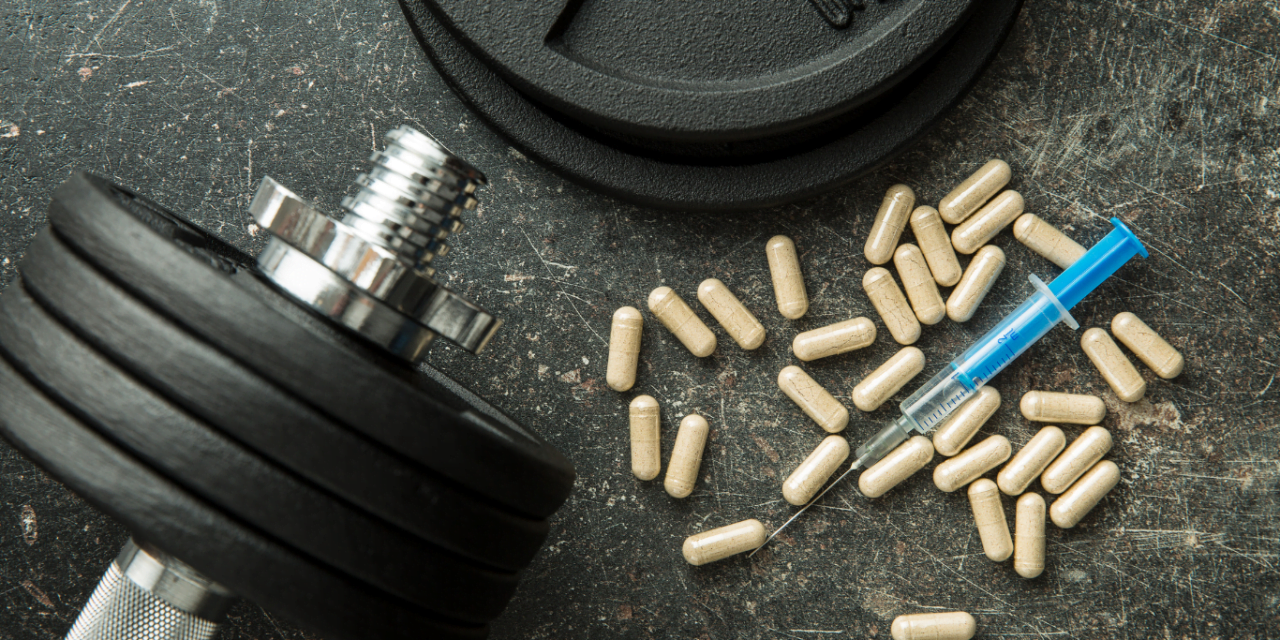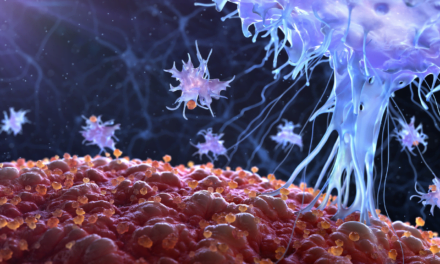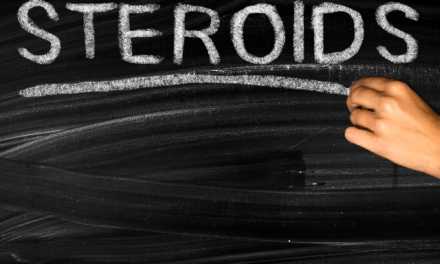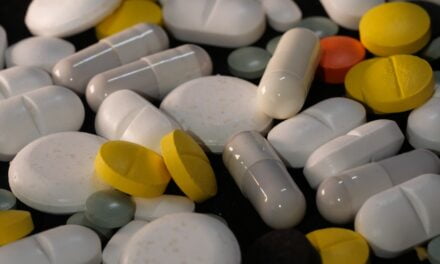Anabolic steroids are a group of synthetic hormones similar to testosterone, the male sex hormone. They were first synthesized in the 1930s and have since been used for various purposes, including increasing muscle mass, improving athletic performance, and treating certain medical conditions. However, using anabolic steroids has been associated with various adverse effects, including on the reproductive system and fertility. In this article, we will discuss the impact of anabolic steroids on the reproductive system and fertility, and the implications for athletes, healthcare providers, and policymakers.
Anabolic Steroids and Male Reproductive System
The male reproductive system comprises the testes, epididymis, vas deferens, seminal vesicles, prostate gland, and urethra. Testosterone is the primary hormone responsible for developing and maintaining male reproductive tissues and secondary sexual characteristics. Anabolic steroids can disrupt the delicate balance of hormones in the body, adversely affecting the male reproductive system.
Anabolic steroids can reduce testosterone levels in the body, leading to hypogonadism, which can cause a range of symptoms, including reduced libido, erectile dysfunction, and infertility. Anabolic steroids can also disrupt testicular function, leading to testicular atrophy (shrinking of the testicles) and reduced sperm production. In addition, studies have shown that anabolic steroid use can reduce sperm count, motility, and morphology, negatively impacting male fertility
Other effects of anabolic steroids on the male reproductive system include the development of breast tissue (gynecomastia), acne, and hair loss. Long-term use of anabolic steroids can also increase the risk of prostate cancer.
Anabolic Steroids and Female Reproductive System
The female reproductive system comprises the ovaries, fallopian tubes, uterus, cervix, and vagina. Estrogen is the primary hormone responsible for developing and maintaining female reproductive tissues and secondary sexual characteristics. Anabolic steroids can disrupt the delicate balance of hormones in the body, adversely affecting the female reproductive system.
Anabolic steroids can increase estrogen levels in the body, leading to estrogen dominance, which can cause a range of symptoms, including menstrual irregularities, infertility, and breast tenderness. Anabolic steroids can also disrupt ovarian function, reducing ovulation and fertility.
Other effects of anabolic steroids on the female reproductive system include the development of male characteristics (virilization), such as increased body hair, deepening of the voice, and clitoral enlargement. Long-term use of anabolic steroids can also increase the risk of breast cancer.
Anabolic Steroids and Male Reproductive System in the UK
The use of anabolic steroids has significant implications for the reproductive system and fertility in both males and females. In the United Kingdom, these synthetic hormones similar to testosterone have been associated with adverse effects that disrupt the delicate balance of hormones in the body. This subheading delves into the specific impact of anabolic steroids on the reproductive system and fertility within the UK context.
Anabolic Steroids and Male Reproductive System in the UK
In the United Kingdom, the male reproductive system is vulnerable to the adverse effects of anabolic steroids. These substances can lower testosterone levels, leading to hypogonadism, a condition associated with reduced libido, erectile dysfunction, and infertility. Additionally, anabolic steroid use can disrupt testicular function, resulting in testicular atrophy and diminished sperm production. Studies have also shown that anabolic steroid use can decrease sperm count, motility, and morphology, negatively affecting male fertility. Furthermore, the UK context highlights other potential effects, such as the development of breast tissue, acne, hair loss, and an increased risk of prostate cancer.
Anabolic Steroids and Fertility
Fertility refers to the ability of an individual to conceive and have children. Anabolic steroids can hurt fertility in both males and females.
In males, anabolic steroids can reduce sperm production and quality, leading to infertility. In some cases, this may be reversible after discontinuing steroid use, but in others, it may be permanent. Anabolic steroids can also reduce testosterone levels, leading to hypogonadism, further impacting fertility.
In females, anabolic steroids can disrupt ovulation, leading to reduced fertility. In addition, anabolic steroids can also cause menstrual irregularities, such as amenorrhea (absence of menstrual periods), which can further impact fertility.
Treatment for Anabolic Steroid-Related Reproductive System and Fertility Issues
The treatment for anabolic steroid-related reproductive system and fertility issues depends on the specific condition and its severity. In males, treatment may include hormone replacement therapy, such as testosterone replacement therapy, to restore testosterone levels and improve reproductive function. In severe cases, assisted reproductive technologies, such as in vitro fertilization, may be required to achieve
Pregnancy.
Treatment may include hormone therapy in females to regulate menstrual cycles and restore fertility. In severe cases, assisted reproductive technologies may also be required.
It is important to note that prevention is the best treatment for anabolic steroid-related reproductive system and fertility issues. Athletes and individuals considering anabolic steroids should be aware of the potential risks and adverse effects, including on the reproductive system and fertility. They should also consider alternative strategies for improving athletic performance and achieving goals.
Conclusion
In summary, anabolic steroids can harm both males’ and females’ reproductive systems and fertility. They can disrupt hormone levels and function, leading to various adverse effects, including reduced sperm production and quality, menstrual irregularities, and reduced ovulation. Treatment for these issues depends on the specific condition and its severity and may include hormone replacement therapy or assisted reproductive technologies. Prevention is the best approach to avoid anabolic steroid-related reproductive system and fertility issues. This includes education and awareness of the potential risks and adverse effects of anabolic steroid use, and consideration of alternative strategies for achieving athletic and fitness goals. Further research is needed to fully understand the impact of anabolic steroids on the reproductive system and fertility and to develop effective prevention and treatment strategies.
FAQs
Q:What are anabolic steroids?
A: Anabolic steroids are synthetic substances that mimic the effects of testosterone in the body, promoting muscle growth and improving athletic performance.
Q: What is the history of anabolic steroid use?
A: Anabolic steroids were first developed in the 1930s to treat hypogonadism and other medical conditions. In the 1950s, they began to be used by athletes and bodybuilders to enhance performance.
Q: Why is it important to study the impact of anabolic steroids on the reproductive system and fertility?
A: Anabolic steroids can disrupt hormone levels and function, adversely affecting the reproductive system and fertility. Understanding these impacts is essential for athletes, healthcare providers, and policymakers to make informed decisions about the risks and benefits of anabolic steroid use.
Q: What are the effects of anabolic steroids on testosterone levels in males?
A: Anabolic steroids can increase male testosterone levels, but long-term use can suppress natural testosterone production.
Q: How do anabolic steroids impact testicular function in males?
A: Anabolic steroids can cause testicular shrinkage and reduced sperm production.
Q: What is the relationship between anabolic steroids and sperm count in males?
A: Anabolic steroids can reduce sperm count and quality in males, leading to infertility.
Q: What other effects do anabolic steroids have on the male reproductive system?
A: Anabolic steroids can cause acne, hair loss, and an increased risk of prostate cancer in males.
Q: How do anabolic steroids impact estrogen levels in females?
A: Anabolic steroids can disrupt female estrogen levels, leading to menstrual irregularities and reduced ovulation.
Q: What is the impact of anabolic steroids on ovarian function in females?
A: Anabolic steroids can cause ovarian dysfunction, reducing ovulation and fertility.
Q: What is the relationship between anabolic steroids and menstrual irregularities in females?
A: Anabolic steroids can disrupt menstrual cycles and cause irregular periods in females.
Q: What other effects do anabolic steroids have on the female reproductive system?
A: Anabolic steroids can cause acne, increased facial and body hair growth, and deepening of the voice in females.
Q: What is fertility?
A: Fertility is the ability to conceive and produce offspring.
Q: How do anabolic steroids impact fertility in males?
A: Anabolic steroids can reduce sperm production and quality, leading to male infertility.
Q: How do anabolic steroids impact fertility in females?
A: Anabolic steroids can disrupt ovarian function and menstrual cycles, reducing female ovulation and fertility.
Q: How are anabolic steroid-related reproductive system and fertility issues treated in males?
A: Treatment may include hormone replacement therapy and assisted reproductive technologies.
Q: How are anabolic steroid-related reproductive system and fertility issues treated in females?
A: Treatment may include hormone therapy to regulate menstrual cycles and restore fertility and assisted reproductive technologies.
Q: How are anabolic steroid-related reproductive system and fertility issues treated in males and females?
A: Treatment depends on the specific condition and its severity and may include a combination of hormone replacement therapy and assisted reproductive technologies.
Q: How can anabolic steroid-related reproductive system and fertility issues be prevented?
A: Prevention is the best approach and includes education and awareness of the potential risks and adverse effects of anabolic steroid use and considering alternative strategies for achieving athletic and fitness goals.
Q: What are the implications of the anabolic steroid-related reproductive system and fertility issues for athletes, healthcare providers, and policymakers?
A: Understanding the impact of anabolic steroids on the reproductive system and fertility is essential for athletes to make informed decisions about the risks and benefits of using these substances. Healthcare providers need
Author

Dr. Aditya K. Sharma
I am Dr. Aditya Sharma, a dedicated urologist specializing in kidney transplants and advanced urological surgeries. My career is driven by a passion for delivering exceptional care and pioneering surgical techniques. Outside the operating room, I have a keen interest in studying the effects of anabolic steroids on bodybuilding, seeking to understand the fine line between enhancing performance and maintaining health.








